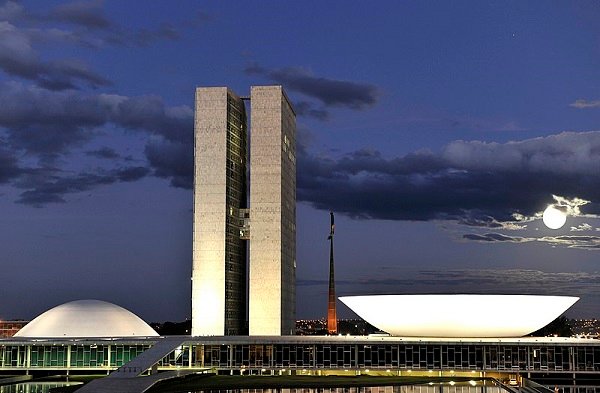Although the Planalto Palace has avoided openly opposing the candidates favored to lead the Senate and Chamber of Deputies in 2025, it foresees potential challenges in dealing with Davi Alcolumbre (União Brasil) and Hugo Motta (Republicanos). For allies of President Lula (PT), Alcolumbre represents a shift in profile compared to the current Senate president, Rodrigo Pacheco (PSD), which may complicate negotiations. Meanwhile, in the case of Motta, the challenge lies in building a working relationship with the congressman, who, like the current president of the Chamber of Deputies, Arthur Lira (PP), has previously clashed with the government’s political coordinators.
This Content Is Only For Subscribers
To unlock this content, subscribe to INTERLIRA Reports.
The situation in the Senate
In the Senate, where the Lula government enjoys a more cohesive support base, Pacheco is regarded as a reliable ally. Alcolumbre, however, is seen as a tougher negotiator and not fully aligned with the administration. To demonstrate goodwill, the Planalto consulted Alcolumbre regarding 17 regulatory agency board appointments before submitting them to Senate scrutiny in December. Despite this effort, tensions arose late in the year when Alcolumbre expressed dissatisfaction over indigenous land demarcations in Santa Catarina via presidential decrees, claiming he had been misled.
Search for Dialogue
The government aims to smooth relations with Alcolumbre before the February election to maintain a favorable environment in the Senate. During Pacheco’s tenure, despite occasional disagreements, he supported the administration at key moments. For example, in early 2024, he postponed a congressional session to review a veto by Lula on the payment calendar for amendments. The government is attempting to replicate such cooperation with Alcolumbre, despite the anticipated difficulties.
Not an Easy Path for Alcolumbre
As the consensus candidate to lead the Senate starting in February, Davi Alcolumbre has already secured broad support from various parties, effectively neutralizing opposition. However, his tenure is unlikely to be smooth. Politically, he will need to mediate escalating tensions between PT and PL leading up to the next elections. Institutionally, he will face the challenge of resolving conflicts over parliamentary amendments involving Congress and the Supreme Federal Court (STF), which have strained legislative-executive relations.
Different Scenarios with Deputies
In the Chamber of Deputies, Hugo Motta is viewed by Planalto as a more conciliatory figure compared to Arthur Lira. The government anticipates an improvement in relations, especially since Lira previously severed ties with Minister Alexandre Padilha (Institutional Relations), responsible for liaising with Congress. Motta, who has maintained a positive relationship with Finance Minister Fernando Haddad, has shown a willingness to assist in advancing economic projects. However, the government recognizes that building a robust relationship with Motta will still require significant effort.
Predictability as a Promise
With near-unanimous support from political parties, Hugo Motta is set to lead the Chamber in 2025. His primary commitment is to enhance predictability, a quality notably absent in Arthur Lira’s administration. Under Lira, legislative agendas were often released late in the day, making it difficult for deputies to study proposals, prepare for votes, and mobilize against contentious issues. Motta’s promise of greater transparency and predictability has been well-received by legislators.
Lira’s Future Prospects
Despite losing the presidency of the Chamber, Arthur Lira intends to remain politically active. Discussions among parliamentarians have included the possibility of Lira assuming the Ministry of Agriculture, bringing him closer to the Lula administration. Under this arrangement, Carlos Fávaro, the current minister, could return to the Senate to serve as Davi Alcolumbre’s vice president. While no official ministerial changes have been confirmed, such moves are expected to take shape after February, following the leadership transitions in Congress.
Analysis:
The leadership transitions in Brazil’s Senate and Chamber of Deputies in 2025 reflect the intricate and often challenging dynamics between the Executive and Legislative branches. For President Lula’s administration, the emergence of Davi Alcolumbre and Hugo Motta as heads of Congress brings both opportunities and challenges that will significantly influence governance, policy advancement, and political stability. These changes demand strategic adaptation to ensure the continuation of the government’s legislative priorities.
In the Senate, the expected transition from Rodrigo Pacheco to Davi Alcolumbre marks a notable shift in the political landscape. While Pacheco has been a reliable ally, providing essential support during critical legislative moments, Alcolumbre’s reputation as a tougher and less predictable negotiator suggests that the government may face increased difficulties in securing consensus. Alcolumbre’s broader base of support among various parties underscores his influence but also highlights the complexity of managing alliances in a politically diverse Senate.
In the Chamber of Deputies, the rise of Hugo Motta is seen as a potential improvement over the tenure of Arthur Lira, known for his confrontational approach and erratic legislative agenda. Motta’s reputation for being more predictable and cooperative, coupled with his strong relationship with Finance Minister Fernando Haddad, signals a more favorable environment for advancing key economic initiatives. However, navigating these leadership changes will require the Lula administration to carefully balance institutional and personal politics in a polarized Congress to ensure progress on its legislative agenda and long-term policy goals.




